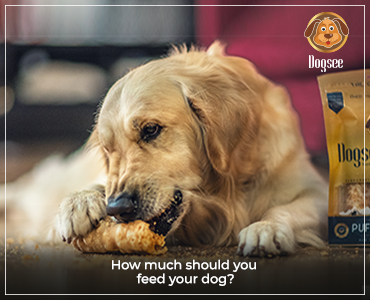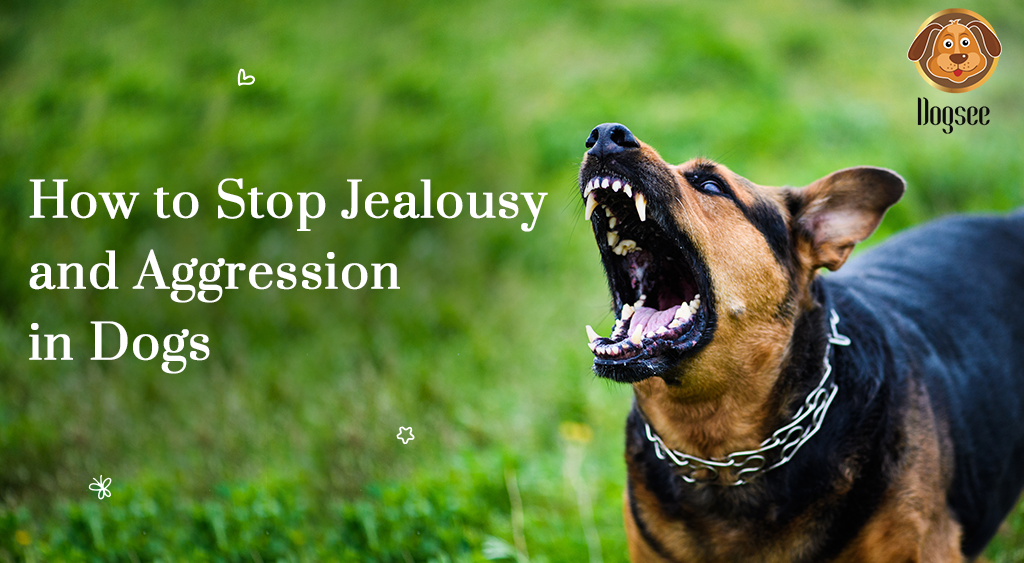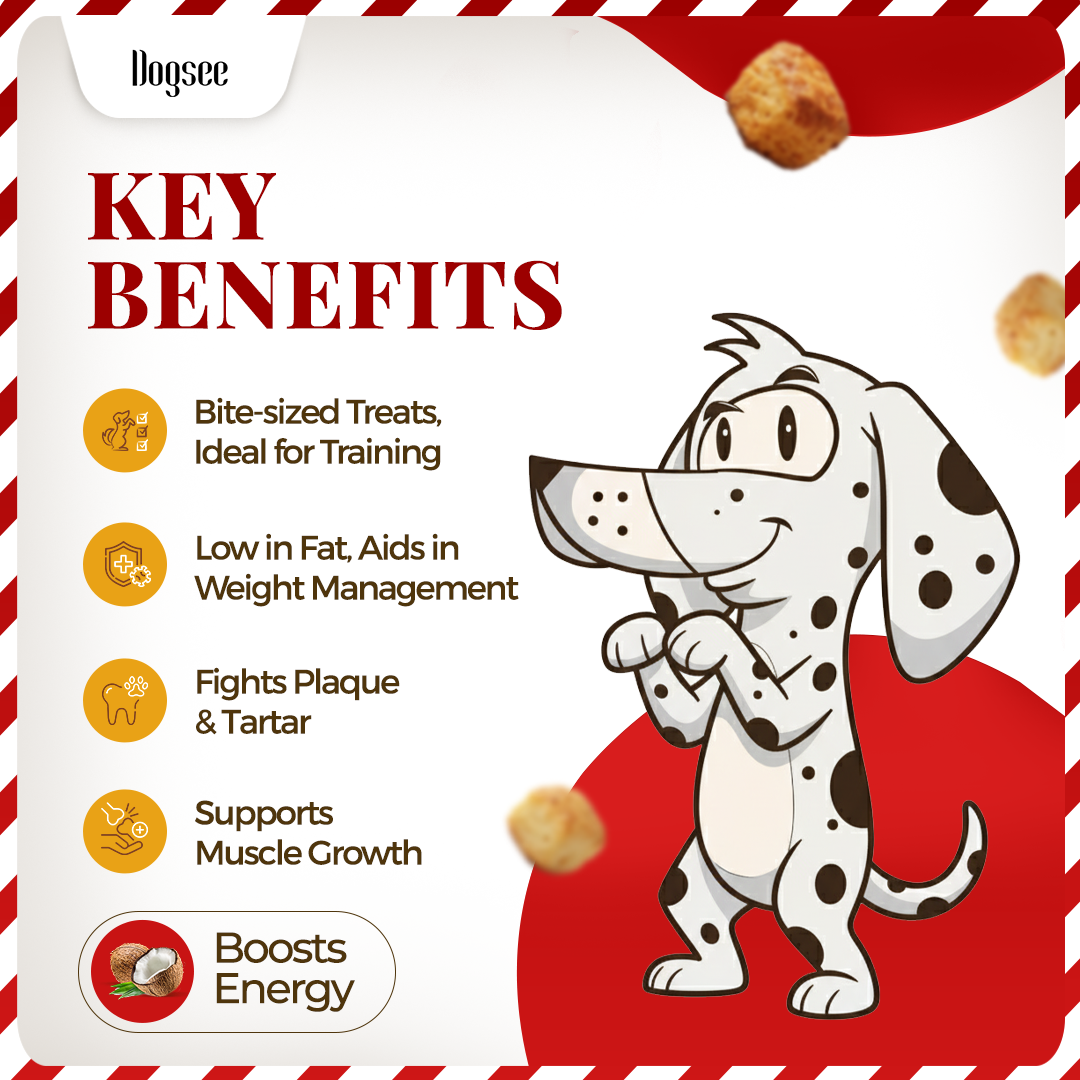
The cute ones, the fiery ones, the long-eared ones or the big-sized ones - every doggo has their own personality. Starting from the time when they are puppies to the time they grow into mature adults, doggos show different personality traits. However, there are some behaviour patterns that every pet parent faces at one time or another. If you’re wondering why does your doggo show a certain behavior, remember that you are not the only one!
Communication is the key to understanding and building a healthy bond with your furry friend. In order to do that, you have to understand the causes of certain dog behaviours and only then can you work a way out to keep them in check.
Understanding your Doggo’s Body Language
At times, it is possible to understand symptoms of destructive or aggressive behaviour before your doggo actually does something. If you can read their body language and spot the signs of fear, aggression and discomfort, it would be easier to prevent your doggo’s misbehavior by diverting their attention or taking them out of that situation.
Some common body language symptoms include:
1. Shy/Nervous
If your doggo is getting behind you, yawning, licking their nose, shaking off their ears or pulling them backwards or keeping them flat against the head, it is a sign of shyness or nervousness. In case your doggo is nervous around other doggos or unknown hoomans, they may get aggressive. In such a situation, you can request people around to approach cautiously to your doggo or avoid any engagement at all.

2. Fear
The hairs on the back and the neck of your doggo rising up is a sign of fear or suspicion. If it’s fear, the doggo might try to pull back, or start growling and barking. If it’s suspicion, the tail will be high up, the body stiff and the head and neck raised. At such times, take your doggo the other way and try to take them out of the situation.
3. Stalking
If you find your doggo with their legs bent, eyes wide open and fixed somewhere and a stiff tail, know that they are stalking something ( a toy or may be a bird) and you can expect them to run off at any moment after whatever they were stalking. A well-trained doggo may listen to your command and come back to you. However, this natural hunting instinct can be hard to resist and they may run away or even get lost at times. As a pet parent, if you’re unsure whether your doggo will listen to you, it’s better to keep them on a leash when outside.
4. Anxious
Say you’re going out of the house without your furry friend, and they show signs of anxiety and nervousness or get very clingy, there are high chances that it may be a symptom of separation anxiety. They will tend to get destructive and create havoc in your home and personal belongings as you leave. Try diverting their attention at such times by giving them a long lasting treat that keeps them engaged while you run your errands.

5. Beg/Steal Food
If you find your doggo around your table during your meal time, licking their lips or trying to jump, whine or bark at you, know that it is a sign that they are begging or planning to steal some food. While giving a little titbit from your plate is not bad, but if they develop the habit of begging food, it can turn to be a misbehaviour especially when you take your doggo outside. You can try ignoring this bad behavior, and if they still don’t listen - keep your doggo in another room during meals.
Common Behavioural Problem in Doggos
No matter the breed or size of the doggo, there are some behavioral problems that are witnessed in all doggos. Here are the most common dog misbehaviors and the best way to tackle them:
1. Digging
Doggos love to dig, it’s their inherent personality trait. However, this habit can become a misbehaviour if they start digging up your garden or your neighbour’s. As a pet parent, you have to train them to stop digging at your command. Scolding your pup after the deed is done will not help to correct their behaviour. What you can do is stop them when they are in the process of digging, and distract them with a toy or a long lasting treat. You can also mark a particular spot and train your dog to dig only that part of the ground.
2. Chewing
Chewing, once again, is an inherent trait of doggos, especially puppies. They actually explore the world around them, all the more during the teething period, by chewing, and this activity is also known to calm them. This dog behaviour can become a problem when they start chewing your rugs, cushions, books or any other household item nearby.
Remember that chewing anything not only destroys your stuff, but can cause your doggo to choke also. Therefore, it is important to control this behaviour. A chew toy or a long-lasting dental chew can help in controlling this problem. When you catch your doggo chewing something that they shouldn’t, command them to stop and replace it with a toy/treat and appreciate when they chew on the right thing. This way, your doggo will understand what to chew and what not to chew.
3. Eating Grass
A lot of pet parents have often caught their dog eating grass, something which is not necessarily a part of their diet. However, this behaviour can spoil your garden or create unwanted mess.
Why do dogs eat grass? It is believed that they do it mostly out of boredom, and due to a lack of physical and mental stimulation. To bring this behaviour in control, give them enough opportunities to play and exercise. Puzzle games, chew toys or chewy treats will keep them preoccupied in such times.
4. Not responding to your call
As a pet parent, you should always praise your dog when they respond and come to you when called to establish the fact that it is a good habit. A lot of times, doggos do not listen to you and will not come even after repeated calling. In case of such a behaviour, try moving away and keep calling them. On the basis of dog psychology, seeing you go will compel them to come to you. If they still don’t respond, give the command to sit and then fetch them.
5. Pulling the leash
While going out for a walk, pulling on the leash is another dog behavior problem that a lot of pet parents face. Teach your doggo to always walk in a calm manner with you in a leash. If you let them pull, they would think that it is okay to do it and they may gain something from it. Use a short leash but remember to keep it loose. If you find your doggo pulling it, simply stop moving. Once they come back to you, give them a small reward and then start walking again. In a few days, your doggo will understand that pulling on the leash is bad behavior and will not earn any pat or treats.

6. Whining
Some doggos tend to keep whining for attention. While they are at it, if you are continuously looking at them or petting them, your doggo will build on this bad habit. It is better to ignore them, or turn your back, fold your arms or move away from the room. You can pet your doggo or play with them once they stop whining.
7. Barking
Barking at the door is another habit that doggos have, which may turn into a behavioural problem if not checked. To bring your doggo’s excessive barking in control, first choose a spot from where the door can be seen. Teach them to stay there with a command, and this will help them remain calm and wait while waiting for their turn to be greeted by the visitor. Keeping this in practice will slowly bring the excessive barking of your doggo in control.

8. Jumping on people
Jumping on people to greet them comes naturally to dogs, but it may scare people who are not used to it. It gets all the more embarrassing when dogs display signs of humping and mounting with your guests. To tackle this behavioral problem, turn away from your doggo when they are jumping on you. Try to ignore them until they have their paws on the floor. Once they do so, then only greet/pet them. You can also command them to sit, and then pat or give them a treat as a reward. This would teach your doggo gradually to keep their excitement in control, especially when visitors or guests come to the house.
9. Biting/Being aggressive
Dogs generally tend to bite or get hostile when they are afraid or nervous. Helping them socialize from a young age will help them feel relaxed around humans. Apart from that, exposure to different places and situations will also help them to adjust in surroundings and trust people. In case your pup shows strong signs of aggression, it is recommended to never leave them alone, especially with children and people they are not familiar with. Take them to a vet or a certified trainer to tackle this problem.
10. Poop eating
Poop eating, or coprophagia is another common habit that pet parents find disgusting. Theories state that the underlying cause for this behaviour can be instinct, symptom of illness/malnutrition, anxiety, stress or the urge of having non-food items. This behaviour may not be very dangerous, but it is certainly not healthy. Consulting a vet can help here as there may be changes needed in diet or your doggo may need special dog behaviour training to stop poop eating.
Mistakes Pet Parents Make That Encourage Dog Misbehavior
One important thing to keep in mind is that dog behavior problems are not just their fault, but also for some mistakes that pet parents make. Just like children, dogs are also learning with their humans every moment. There are a lot of things people do unknowingly that encourage behavioral problems. The top 3 mistakes would be
1. Inadequate Exercise
When dogs fail to get enough exercise, they tend to indulge themselves in activities that will burn their energy. This pent up energy is then used to bite your cushions and shoes, scratch the walls, steal food or dig up the garden. A quick 5 minute walk outside everyday is not enough exercise for your doggo. So make sure you provide them with adequate physical activity and movement. You can make the sessions fun by adding some games and nutritious treats in it.

2. Insufficient Training
Making your doggo learn to sit, lie and use the washroom is not the end of their training. As the saying goes that there is no end to learning, try teaching a new command or a trick to your doggo every week, while practicing the older ones. This would not only create a healthy relationship between you, but also the mental work involved in it would tire your doggo and prevent any unwanted behaviour.
3. Reinforcing Bad Behaviours
What do you do when you see your dog misbehaving? Do you simply yell at them and then let them do it again? If you see your pooch stealing from your plate, and you just shout at them but let them have the food, your doggo will know that they can get away with this behaviour. Always check dog behaviour problems from the very beginning and do not reward them for it. When they try stealing from your plate, stop them and give the command to sit down and wait nearby. When they do so, then reward them and your doggo will learn which behaviours will get them treats and hugs.
Help Your Doggo Overcome Behavioral Problems with the Goodness of Dogsee Treats
Dogsee dog treats are as pure as your love, without any preservatives and adulteration. Sourced from the Himalayas, Dogsee treats are 100% natural, grain and gluten free treats that not just provide nutrition to your doggos, but also help with their training sessions. These all-time favourite treats are available as:
Hard Chews: Made with the finest cheese, Dogsee hard chews are long-lasting dental treats that kill boredom and keep your furry friend busy for a long time. These treats are also good for their oral health and keep the breath fresh.
Puffed Treats: Smoke dried to perfection for over 35 days and then heated for a crunchy texture, Dogsee puffed treats are high in energy and low in fat, which help in weight management and ideal for dog training.
Crunch: Dogsee Crunch is a range of freeze-dried, single ingredient treats made from real fruits and vegetables. Sourced from the choicest farms, these tasty treats are perfect for training and rewards. Crunch is available in 4 delightful flavours - apple, banana, coconut and beetroot.
Always remember that when it comes to tackling dog behaviour problems, consistency plays a major role. So set some ground rules, get them enough exercise, provide good food, reward them for their good behaviour and correct the bad behaviour - and your doggo will learn to be obedient at all times!
 HELPFUL0 people found it helpful
HELPFUL0 people found it helpful
Related Blogs
Subscribe to Our Blogs
and never miss on the latest update!



















